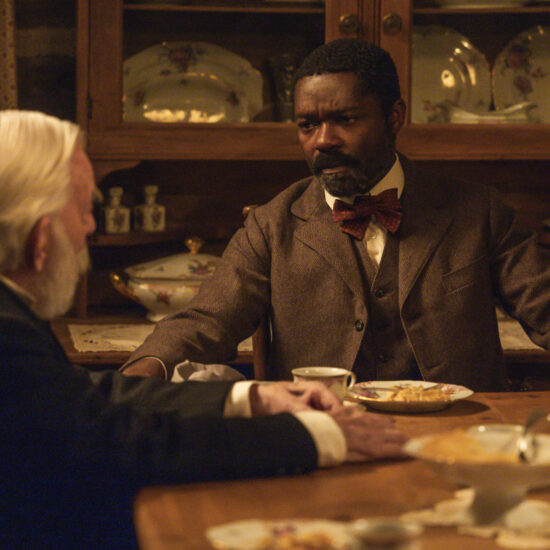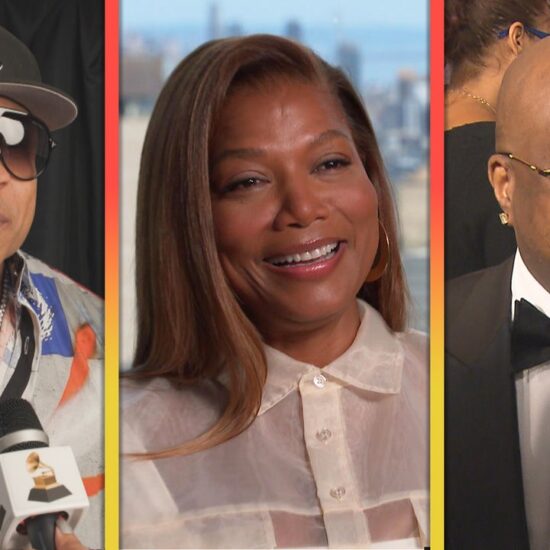
On a Friday night, at the center of the Santa Fe Springs Swap Meet, a large stage at this open-air California market stood in front of an expanse of picnic tables and food vendors.
The swap meet, at the border of Los Angeles and Orange Counties, usually hosts tribute bands that pay homage to Rock & Roll Hall of Fame-enshrined acts like Metallica or Mexican American icons like Jenni Rivera. But that evening in March, Juicebox, Southern California’s leading Strokes tribute band, had gathered an enthusiastic, multigenerational audience ready to celebrate the group that has come to symbolize stylish downtown New York City rock in the early 2000s. There were leather jackets everywhere.
Deep into the show, when the group played “50/50,” a forgotten track from the Strokes’ 2013 full-length “Comedown Machine,” a mosh pit started, earning the crowd a warning from the venue. As Juicebox left the stage after performing 47 singles, album cuts and B-sides over three sets, chants began, calling out for one more: “¡Otra! ¡Otra! ¡Otra!”
The members of Juicebox, like the crowds they draw, are predominantly Latino, though the band’s founder and drummer, Jason Wise, is a 38-year-old self-described “Jewish dude” from Queens. He moved to Los Angeles in 2010 and fell in with a group of mostly Latino musicians he met through Craigslist who loved early 2000s rock bands as much as he did. Six years ago, Wise started Juicebox, which now features the lead vocalist Edgar Rene Espino, the guitarists George Campos and Renzon Sanchez and the bassist Tony Perez (who recently took over for John Leal). It usually plays twice a month, booking gigs across Southern California.
Wise discovered the Strokes when he was in his midteens and they’ve been his favorite band ever since. “They are a big part of who I am as an individual and to be able to be part of spreading the fandom and the love of the Strokes to other people is something that I’m not tired of doing,” he said. “If I wasn’t in this band, I would go to these shows.”
The Strokes themselves remain a major act in Latin America, which has a long tradition of supporting rock music. When the band performs “Reptilia” for festival crowds, it’s greeted with stadium-size fútbol chants.
It’s not surprising that a place like Los Angeles County — where 49.1 percent of respondents (or more than 4.9 million people) in the 2021 census identified as Hispanic/Latino — is home to a large number of Latino Strokes fans.
But Jeanette Diaz, a journalist and publicist from Los Angeles, believes that the pull of the Strokes is especially strong among the first-generation American children of immigrants, who can have complicated feelings about their identities and which culture they belong to. The band “could just do what they wanted to do and it was accepted, and a lot of people try to find that,” Diaz said. “It’s this idea of fitting in on your own terms, which a lot of Latin kids craved, maybe subconsciously.”
Some members of Juicebox say they feel a closeness with the Strokes that comes partly from representation. (The drummer Fabrizio Moretti was born in Brazil, and the guitarist Albert Hammond Jr.’s mother is from Argentina.) “I see pictures of Fab and I’m like, I play soccer with that guy, he looks like someone I know,” said Sanchez, the Juicebox guitarist whose own background is half Lebanese and half El Salvadoran. “And a guy like Albert, who has big curly hair, that’s my brother. I can see myself in the Strokes.”
The most obvious antecedent to this fandom is the one for the Smiths, the maudlin but melodious Manchester band that broke up in 1987 but continues to enjoy a passionate following among Mexican Americans today. This relationship has been covered in articles, documentaries and books for over 20 years, and it too has inspired tribute bands, including the long-running Sweet & Tender Hooligans, fronted by Jose Maldonado, who is often called “the Mexican Morrissey.”
José G. Anguiano, an associate professor of Chicana/o and Latina/o Studies at California State University, Los Angeles, said he has seen similar phenomena in the region’s goth, metal and rockabilly worlds. “As people have moved away or they’ve aged out of certain subcultures or music scenes, it does seem like in Los Angeles, Latinos have moved in to take the reins,” he said. “What’s really cool is they’re taking the reins, not just in terms of being fans, but also fronting these tribute bands and producing their own music. They’re fully participating in every sense in these subcultures.”
In 2022, the rising El Monte, Calif., band the Red Pears covered the Strokes’ “Automatic Stop” for Unquiet Live’s YouTube channel. In the video, their guitarist and vocalist, Henry Vargas, introduced the song as being by “Los Estrokes.” The Red Pears never thought it was strange that they knew so many Latino people who were into the Strokes because they all came to the group through Latino friends. But it was each band member’s individual love of the Strokes that helped bring them together and shape their sound.
“In our city there was a lot of punk, ska and metal bands,” Vargas said in an interview. “We were the only ones that were branching out, trying out different stuff.”
Before joining Juicebox in 2022, Espino, the band’s lead singer, was in a different Strokes tribute band for six years, but he’s never seen the real deal play live. He said he’s always been a bigger fan of the Arctic Monkeys, whose frontman, Alex Turner, famously started an album with the lyrics, “I just wanted to be one of the Strokes.”
“I’m living his life right now,” Espino quipped.
Sanchez, 26, is the Juicebox member most interested in re-creation. In a skinny tie or a polo shirt, he plays a white Fender Stratocaster at nearly chest-level, just like Hammond Jr. His mind was blown open by the Strokes when he was 14, after two brothers he used to be in a band with introduced him to the song “The Modern Age.”
But an even younger cohort has recently embraced the Strokes through the Rick Rubin-produced album “The New Abnormal,” from 2020, which spawned a TikTok hit in “The Adults Are Talking.”
On a Friday night in late May, a crowd packed Knucklehead, a dive-y bar on an unglamorous block in Hollywood. Juicebox was on the bill alongside an Arctic Monkeys tribute band called Polar Primates for Room on Fire, a club night dedicated to early 2000s indie and alternative music. The Strokes’ time playing tiny New York City venues like the Mercury Lounge looms large in their history, but in reality, it lasted for barely a blip. Juicebox shows like this one let fans who were born too late or on the opposite coast reimagine themselves in that moment.
During a phone interview a few days earlier, Room on Fire’s D.J. and promoter, Miguel Ponce, 29, explained that he learned about the Strokes from a friend on his high school baseball team, but it took a little time before he truly got it. “I heard the song ‘Ize of the World’ and I don’t know what it was, but all of a sudden it hit like a spark, dude,” he said. “I didn’t know how they’re doing it, where they sound like they’re not trying, but they’re really trying.”
Ponce started Room on Fire in March 2022, but the early installments didn’t draw much of a crowd. After he had Juicebox play for the first time this past January, the party began to take off. “I started seeing the true potential of what I can do,” he said.
Before the pandemic, Ponce used to book shows with local acts in Downtown Los Angeles. He already knew how much of an influence the Strokes had. “Most of the indie bands, they would dress like Julian Casablancas,” he said. “There’s no shame in that.”













